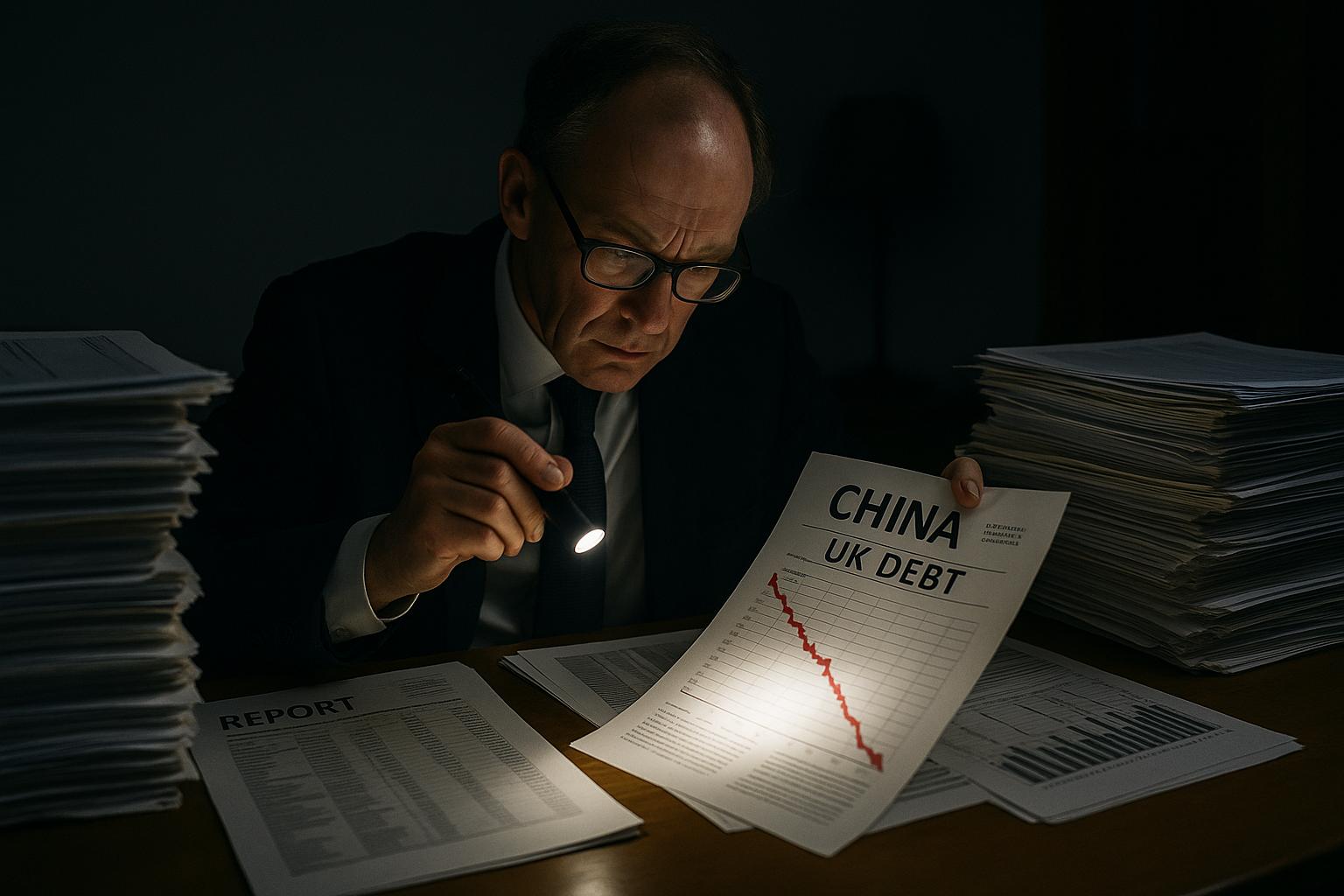Britain faces a mounting risk of falling into a "debt trap" that could expand China’s influence over UK government policy, a concern increasingly voiced by political leaders and economic experts. The UK’s national debt currently stands near £3 trillion, with almost 30 per cent of that borrowing sourced from foreign lenders—a significant increase from around 20 per cent in 2000. While the exact share of Chinese lending remains undisclosed by the Treasury, the scale of Chinese investment in the UK economy is widely regarded as substantial, prompting fears over potential political leverage for Beijing.
Such concerns have taken root amid fears of "debt trap diplomacy," a strategy where China allegedly uses financial dependencies to gain strategic advantages. This was seen in cases like Sri Lanka, where overwhelming debt led the government to hand over a 99-year lease of Hambantota Port to China. Veteran bond analyst Edward Yardeni has stated that there have been accusations of China leveraging loans to acquire critical infrastructure such as ports and mines in emerging economies. However, some analysts contest this interpretation, attributing Sri Lanka’s predicament more to internal political missteps than a deliberate Chinese financial strategy.
Within the UK, Chinese investment permeates diverse sectors, with capital injections into some of the country's largest public companies reaching nearly £90 billion. This has ignited debates about national security and economic sovereignty, especially following recent government interventions. In a notable instance earlier this year, Parliament swiftly passed emergency legislation allowing the Government to take control of British Steel’s Scunthorpe plant from its Chinese owners after a dispute over the closure of its blast furnaces. This move highlighted anxieties about China's role in strategic British infrastructure and fuelled calls to restrict further Chinese investments in sensitive sectors.
The complexity of UK-China relations was underscored by the recent collapse of a high-profile espionage trial involving Christopher Berry and Chris Cash, accused of passing secrets to China between 2021 and 2023. The Crown Prosecution Service halted proceedings citing insufficient evidence and criticised the Government for failing to formally categorise China as a national security threat at the time of the alleged offences. Both men maintain their innocence, and the case has sparked political fallout, with Tory MPs demanding greater transparency and accountability from the Government. Kemi Badenoch, a Conservative minister, accused the administration of weakness in standing up to China, further intensifying calls for scrutiny in Parliament.
This spy scandal unfolded against a backdrop of broader concerns about Beijing’s expansive reach into UK affairs. Berry was said to have transmitted sensitive information, reportedly sourced from Cash who worked in Parliament, to Chinese intelligence agents connected to the top echelons of the Chinese Communist Party. The Conservatives are pressing for a Commons debate to examine these issues, with former security minister Tom Tugendhat and Tory MP Alicia Kearns poised to challenge the Prime Minister on decisions regarding China’s threat assessment.
Critically, the government’s dealings with China occur amid mounting geopolitical tensions and shifting financial landscapes. Analysis from Financial Times and The Guardian highlights the rising proportion of UK foreign debt held by China, alongside investments in sectors deemed ‘strategic’, such as steel production, technology, and infrastructure. Experts have voiced concerns that increasing financial entanglement could constrain UK policy options or heighten vulnerability to economic coercion, echoing global discussions about the complexities of Chinese overseas investments.
The UK government has already enacted steps to tighten oversight of foreign ownership in crucial sectors, reflecting a growing consensus that economic dependencies must not compromise national security. Yet, opinions vary on the extent of the threat posed by China’s investments, with some economists advocating a balanced approach that recognises potential economic benefits while guarding against undue influence.
As the UK navigates this fraught landscape, the intertwined issues of debt, security, and diplomacy will remain central. The evolving saga of espionage allegations, government responses, and parliamentary scrutiny underscores the challenge Britain faces in balancing economic engagement with China against safeguarding its national interests.
📌 Reference Map:
- Paragraph 1 – [1], [2], [3], [6], [7]
- Paragraph 2 – [1], [6], [7]
- Paragraph 3 – [1], [4]
- Paragraph 4 – [1], [5]
- Paragraph 5 – [1], [5]
- Paragraph 6 – [2], [3], [6], [7]
- Paragraph 7 – [1], [2], [4], [6]
Source: Noah Wire Services
